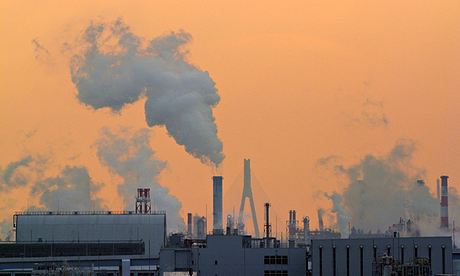Climate change could make humans extinct, warns health expert

Climate change has already left its mark "on all continents and across the oceans", damaging food crops, spreading disease, and melting glaciers, according to the leaked text of a blockbuster UN climate science report due out on Monday.
Nearly 500 people must sign off on the exact wording of the summary, including the 66 expert authors, 271 officials from 115 countries, and 57 observers.
Some parts of the world could soon be at a tipping point. For others, that tipping point has already arrived. "Both warm water coral reef and Arctic ecosystems are already experiencing irreversible regime shifts," the approved version of the report will say.
This will be the second of three reports on the causes, consequences of and solutions to climate change, drawing on researchers from around the world.
The first report, released last September in Stockholm, found humans were the "dominant cause" of climate change, and warned that much of the world's fossil fuel reserves would have to stay in the ground to avoid catastrophic climate change.
This report will, for the first time, look at the effects of climate change as a series of risks with those risks multiplying as temperatures warm.
Some projections in the leaked drafts including a March 25 version include impacts on hundreds of millions of people from coastal flooding, a reduction in the food produced from crops, and trillions of dollars in global economic losses.
A leaked draft of the IPCC report notes that a warming climate would lead to fewer cold weather-related deaths but the benefits would be ''greatly'' outweighed by the impacts of more frequent heat extremes. Under a high emissions scenario, some land regions will experience temperatures four to seven degrees higher than pre-industrial times, the report said.
While some adaptive measures are possible, limits to humans' ability to regulate heat will affect health and potentially cut global productivity in the warmest months by 40 per cent by 2100.
Chris Field, one of the co-chairs overseeing the report said, "If we want to take a smart approach to the future, we need to consider a full range of possible outcomes and that means not only the more likely outcomes, but also outcomes for truly catastrophic impacts, even if those are lower probability."
REF:
http://www.canberratimes.com.au/environment/climate-change/climate-change-could-make-humans-extinct-warns-health-expert-20140330-35rus.html?eid=email:nnn-13omn573-ret_newsl-membereng:nnn-04/11/2013-news_am-dom-news-nnn-ctimes-u&campaign_code=13INO001&promote_channel=edmail&mbnr=MTE2NjY4NTk
http://www.canberratimes.com.au/environment/climate-change/climate-change-time-bomb-ticks-as-the-earth-heats-20140330-35rzn.html
http://www.theguardian.com/environment/2014/mar/28/ipcc-report-climate-change-report-human-natural-systems





...
Sounds pretty conclusive, right? But just as melting icebergs crash into each other in the tepid Antarctic, the IPCC's rigid analysis will butt up against hidebound skepticism. "Belief in global warming has taken on the trappings of traditional religion," scoffs Michael Barone at National Review.
I think we as a society get to hung up on names or titles, what ever you want to call it the problem does exist. And the cavalier attitude of shooting the messenger doesn't make it go away.